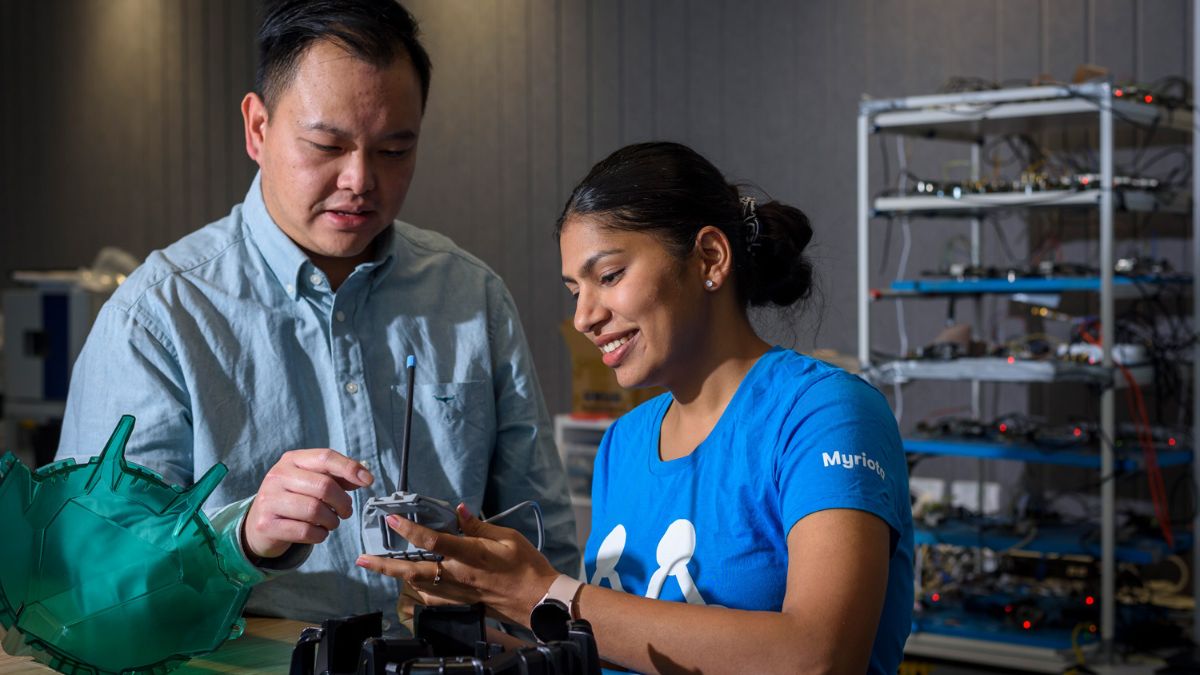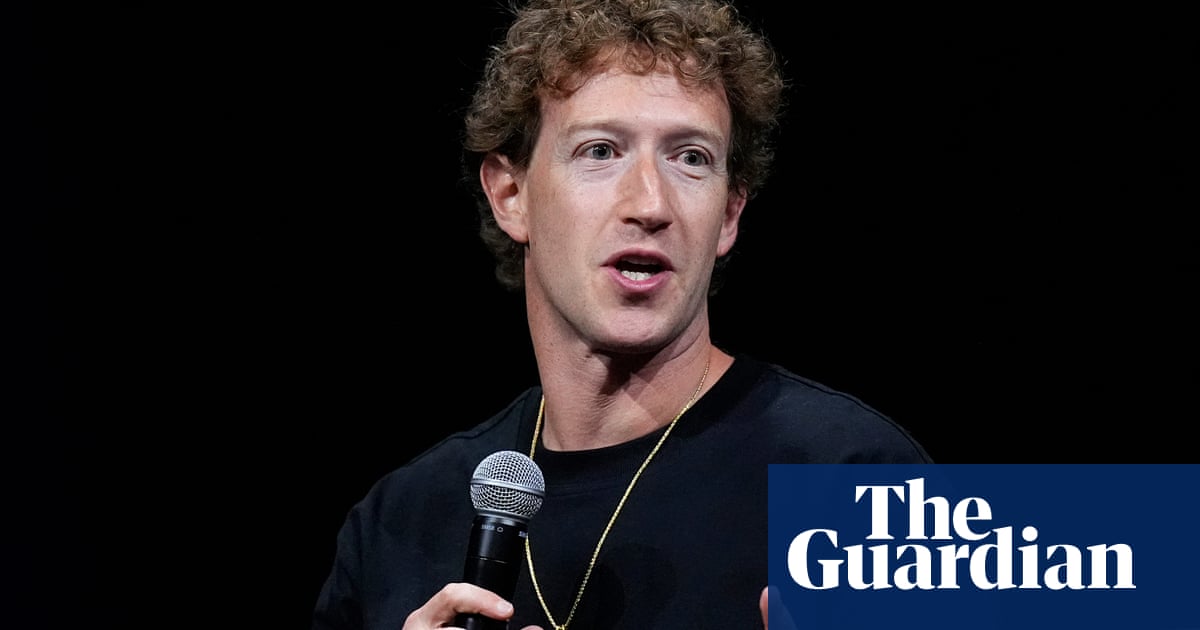The biggest tech court case in Australian history you’ve never heard of

- by Admin
- May 3, 2024
There are roughly 15 million Australians currently suing Apple and Google, and they don’t even know it. You’re probably one of them.
As a nation, we download more than a billion apps each year, and the Federal Court is trying to decide whether we’re being ripped off in the process.
The verdict could upend the rules for every smartphone, and save you cold hard cash.
But, are we being played?
There are no 8-bit characters in the Federal Court, but the players in a blockbuster case about your smartphone are fighting like their last life depends on it.
A titanic legal battle with the potential to reshape the app market has been quietly raging in Melbourne for almost two months — and it’s not even at the halfway point.
On one side are two multi-trillion-dollar companies, Apple and Google.
On the other is Epic Games, the maker of one of the world’s most popular video games — Fortnite.
It’s less David vs Goliath, and more Goliath and Goliath vs a smaller giant, also named Goliath.
If there is a David in the room, it’s you(l2).
The fourth player, or players, are the 15 million other smartphone users and 150,000 app developers who are also suing Apple and Google as part of what may become the single largest class action in Australian history.
Epic Games and the class action lawyers are alleging that Apple and Google are running illegal monopolies, by effectively banning other app stores from their devices and forcing apps to use their payment platform, where they collect between 15 and 30 per cent in fees.
If you ask Google and Apple, it’s all part of offering a sophisticated product that guarantees consumer safety.
The fight has been brewing since 2020, when Fortnite was kicked off the Google and Apple app stores for offering its own in-app payment system, bypassing the tech giants and their commission.
Since then, Epic Games has been suing both companies in courts around the world, including in Europe, the United Kingdom, and the United States.
In Australia’s round of this global grudge match, Justice Jonathan Beach will ultimately decide whether Apple and Google are playing fair.
His verdict could fundamentally reshape the tech we rely on every day, and lead to financial compensation for millions of Australian consumers.
Loading…
Meet the players
PLAYER 1: Google
Net worth: $US2.07 trillion
Market stats: Androids currently enjoy a smartphone market share of just over 41 per cent in Australia. (GlobalStats)
Fighting words: “When they succeed, we succeed” — Paul Gennai, Google’s vice president on reinvesting profits into small-time developers.
Playing for: The right to keep running their app store the same way, as well as their reputation.
PLAYER 2: Apple
Net worth: $US2.679 trillion
Market stats: Apple’s market share is currently almost 58 per cent of the smartphone market in Australia. (GlobalStats)
Fighting words: “Success is not illegal” — one of Apple’s most touted quotes from US District Court Judge, Yvonne Gonzalez Rogers, who ruled mostly in Apple’s favour.
It also says Epic Games is looking for a “free ride on Apple’s investments”.
Playing for: Like Google, Apple is aiming to maintain the status quo for its app store, and prove to the world it’s playing fair.
PLAYER 3: Epic Games
Net worth: $US32 billion
Market stats: Epic Games runs its own app store, and at the end of 2023, it reported approximately 270 million users globally, via PC. As of March 2024, the company says Fortnite was played by more than 230 million people over a month.
Fighting words: “Exquisitely crafted junk fees. Every edge, every facet, is pure junk.” — Epic Games CEO, Tim Sweeney, tweeting about Apple commissions.
Playing for: Change. Epic Games wants both companies to lower their fees and change their rules to allow for more competition in apps — not just in Australia.
They’re also playing for Player 4 — that’s you. The class action can only go ahead if Epic wins its case.
PLAYER 4: 15 million Australians and 150,000 app makers
Net worth: Various
Market stats: The 150,000 app makers covered by the class action include — at least theoretically — almost every developer trading in Australia between November 2017 and December 2020.
Fighting words: “As a developer, I feel I have no power at all with Apple or Google. I’m just a statistic to them. But as a class action, we’re more like a union …. [with] some real negotiating power” — Graham Dawson, independent app developer.
Playing for: Lower commissions, lower prices, and relaxed app store rules. Also, money. Lots of money.
The largest Australian class action to date was on behalf of the 2009 Black Saturday bushfire victims, who were awarded $496 million. Lawyers for this class action say their payout would be even larger.
Loading…
What the fight means in the real world
Most Australians don’t realise they’re suing the tech giants.
That’s because the arguments are so complicated, and at times technical, that the court needs four months to hear them all.
But there are real stakes behind this lawyer’s picnic. It boils down to what you’re being charged for your most-used tech: your smartphone apps.
“If developers [have] less commission taken out of their apps, they’ll be able to charge lower prices,” developer Graham Dawson said.
Mr Dawson has multiple creations within Apple’s App Store, but his most successful is Sun Seeker.
Sun Seeker allows users to track and project where the sun will be in the sky at any point of the day.
This is how he breaks down his payments to Apple.
Sun Seeker costs $US9.99(l3).
From that, Apple takes 15 per cent of the purchase cost, when someone downloads the app.
Additionally, Sun Seeker is only visible when he pays for a spot on the search results page, which costs him another 10 per cent commission.
At the end, Mr Dawson takes home $7.50(l3), before business costs.
He’s not special — this is the industry standard.
In Australia, Apple charges between 15 and 30 per cent commission per sale from developers, depending on their profits.
According to Apple, 85 per cent of apps in the App Store globally pay no commission at all, because they’re not profitable enough.
Apple’s not an outlier — 15 to 30 per cent fees are consistent across the mobile apps market.
But that’s the point — functionally, Apple and Google are the market.
If Mr Dawson wants to sell his app on mobile, these are the terms.
The App Store comes pre-installed on Apple devices, and it’s the only one allowed.
He says it’s not just about fees.
“The second thing I think we’re likely to see [if the case succeeds] is more innovative apps.
“There are a lot of app ideas that people have had … that they tried and [were] rejected for that could be very valuable to users.”
The trial has made him newly optimistic about change.
“As a developer, I feel like I have no power at all with Apple or Google … I am just a statistic to them,” he said.
“As a class action, we’re more like a union or a body and we actually do have some negotiating power.”
Joel Phibbs from Phi Finney McDonald and Kimi Nishimura from Maurice Blackburn are representing developers and users in the class action.
That case will hinge on the outcome of Epic’s suit, even though Epic has opted out of the class action.
If Apple and Google are found to have been overcharging developers, it will trigger Mr Phibbs and Ms Nishimura’s class action, which would be the largest ever brought before an Australian judge.
Even though the amount in question per purchase is small, it all adds up.
“It’s not difficult to see that only a few dollars of damages, for each group member, would result in a significant damages claim,” Mr Phibbs said.
“We estimate that this claim could be in the high hundreds of millions.”
Mr Phibbs, who is one of the firm’s principal lawyers, said the big tech companies in control of marketplaces treat the smaller app makers like children.
“They talk a lot about … this walled garden and we have to protect you from yourselves and the risks you expose yourself to,” he said.
“It’s very paternalistic.”
Loading…
The app developers caught in the middle
James Lockrey is living his childhood dream.
He and his two best friends first decided to start a games company in primary school.
“Ever since we were about 11 or 12, we knew we wanted to make a business and make games together,” he said.
“I think we had the name for Chaos Theory when we were about 13 or 14 … it was on MSN Messenger.”
Chaos Theory is the company he now runs, with the same two friends – they started it in 2012, and since then they’ve made more than 50 games, and grown to a staff of 24.
“I think 11-year-old me would be pretty stoked … I still wake up every day being excited to get into work.”
Chaos Theory creates apps and computer games with a social and environmental impact.
Loading…
The game they’re making at the moment, Crab God, will let users play as an almighty crab under the sea — and make a difference to the environment, via another organisation they’ve partnered with.
“Things like planting trees, saving sea turtles, planting coral polyps, as a result of players doing certain in-game actions and achievements.”
Like Mr Dawson, the Sydney-based studio is considered a small developer, so Mr Lockrey and his team pay 15 per cent of every purchase to Apple.
He’s watching the Epic Games trial closely.
“It’s pretty ballsy,” he said.
“I’m cheering a little bit … you know, eating the popcorn and waiting to see how it pans out.”
If Epic Games does win, and App Store fees do drop, Mr Lockrey doesn’t believe all developers would pass on the savings directly to consumers.
But it would still be a win for users and businesses like his.
“For us, it would probably manifest in allowing us to be a little bit more ambitious with our projects.”
In other words, the money would go towards innovation.
“Five out of every 100 games [are] usually breaking even.
“So maybe that means that a few more do [break even], and a few more gems rise to the surface.”
Loading…
Epic’s crusade against the tech giants
The stage was set for the many legal battles between Epic Games and the tech giants four years ago.
In August 2020, Apple kicked Epic’s golden child, Fortnite, off its App Store over either an act of corporate mutiny or a brave protest, depending on who you ask.
The company added a direct payment system to Fortnite, bypassing Apple’s App Store fees.
In response, Apple removed the game from the App Store, preventing new players from downloading the game.
The move also coincided with the launch of Epic’s own marketplace, which charged a 12 per cent commission, undercutting the Apple and Google rates, which were at the time fixed at 30 per cent.
Epic Games even marked the occasion with a cheeky ad, riffing on Apple’s now-famous 1984 Super Bowl commercial.
Since then, Epic Games has brought suit after suit against both companies, and the results have been mixed.
In 2021, a US court ruled in favour of Apple, on nine of the 10 counts brought by Epic.
The one part of the fight Apple lost was on “anti-steering rules” — policies banning developers from telling users about cheaper alternatives to Apple’s in-app purchase system.
Then in 2023, Epic Games had an important and surprising win, beating Google in a similar suit.
The decision raised eyebrows because Google is often seen as a less egregious offender, of the practices Epic complains about.
For example, Google allows any app to be installed on its devices, and for users to access app stores other than Google Play — even if the process isn’t streamlined.
The mixed results from the US and other jurisdictions make the verdict in the bundled Australian trial difficult to predict.
Apple’s and Google’s fates are not tied, unlike the class actions, which depends on Epic Games’ success.
There are also important differences in Australian law, according to technology and competition law expert, Dr Katherine Kemp at the University of New South Wales.
In the US, even if a company is found to be anti-competitive, it’s not always game over.
“Apple could establish a justification for that conduct by saying that this was necessary to protect the privacy and data security of its users,” she said.
That’s less possible in Australia according to Dr Kemp, because of laws passed in 2017, prohibiting the misuse of market power.
“It’s not easy for Apple or Google to say that the restrictions are justified by privacy and security concerns in Australia.
“If it’s established that there’s a likely anti-competitive effect then they can’t say, ‘We have a legitimate business justification for that’.
“That’s not a defence,” Dr Kemp said.
Loading…
The trial so far
The first two months of proceedings have been dominated by evidence from employees at Apple, Google and Epic Games.
When US-based Epic Games CEO Tim Sweeney travelled to Melbourne to testify, he didn’t pull his punches.
The outspoken executive, worth $US5.7 billion in his own right, called Apple and Google “bullies”, “trash” and, in one email exchange presented to the court, “a**holes”.
“Right now you a**holes are telling the world that the strong and powerful get special terms, while 30 per cent is for the little people. We’re all in for a prolonged legal battle.”(l2)
Epic claims Google and Apple both abuse their respective monopolies to “extract exorbitant fees, stifle competition and reduce innovation”.
Whereas the tech giants have argued all along that Epic’s crusade has nothing to do with competition, and everything to with helping its own bottom line.
Google and Apple maintain that 15 to 30 per cent commission is the industry standard, and in exchange for fees, developers get value.
They say their app stores not only connect developers to a potential audience of billions but also provide safety and security.
“We scan 125 billion apps every day to check that there is no malware and for safety and security,” a Google representative told the Federal Court.
It’s also about the quality of what’s on offer.
During cross-examination, Mr Sweeney was asked about some of the apps available in his company’s app store – among them, “Baby Shooter” and another called “ISIS Hunter” which has been banned in three countries.
Apple has previously said it rejects 40 per cent of applicants for failing to meet its high standards.
It argues the iPhone is much more than just a phone — it’s usually holding a person’s most sensitive data too.
Apple told the court it treats its App Store like “Fort Knox”.
In a statement to the ABC, a company spokesperson said Epic Games was using competition law as a pretext for a different goal.
“Epic is now asking an Australian court to grant it a free and unfettered license to use Apple’s intellectual property to enhance its own bottom line at the expense of the user experience and other developers.”
What happens if Epic Games wins?
Google and Apple are fighting for the status quo, but if Epic Games wins against one or both companies, the losing party will likely be forced to change some or many of their rules.
That could mean lower fees for developers and therefore consumers if they choose to pass the savings on.
It could also mean a more fragmented experience for smartphone users – cheaper, more diverse, and more competitive, but potentially less convenient and less secure.
It could also trigger success in the class action.
How much money would ultimately be paid out, how, and to whom, would be a complicated and drawn-out process for the court to decide.
The goal would be to pay everyone back the amount they were overcharged if overpayment is proven.
Beyond the courts, the case is also being closely watched by both the competition regulator, the ACCC, and the federal government.
A win for app makers could add momentum to a quiet but ongoing campaign for new laws.
In November 2022, the ACCC made formal recommendations that the government create a compulsory code of conduct to clamp down on anti-competitive activity from the tech giants – including Apple and Google.
The changes it recommended, if adopted into law, would likely force many of the same outcomes Epic is currently seeking.
In December 2023, the government responded, saying the ACCC had made a strong case, and Treasury would consult on the design of a new code in 2024.
A verdict in the Federal Court case is expected in 2025.
Credits
Writer: Ange Lavoipierre
Producer: Maryanne Taouk
Editor: Heidi Davoren
Photography: Jack Fisher and Patrick Stone
Graphic design and animation: Gabrielle Flood
The Latest News
-
December 23, 2024Aussies complete series clean sweep against New Zealand
-
December 23, 2024Annabel Sutherland’s sizzling summer continues as Australia ease to win over New Zealand
-
December 23, 2024BREAKING: Aussie grand slam champ accepts anti-doping ban
-
December 23, 2024Kyrgios return ‘super exciting’ for Australian tennis says Alex de Minaur
-
December 23, 2024Foxtel had a pay TV monopoly, now it’s been sold to DAZN





